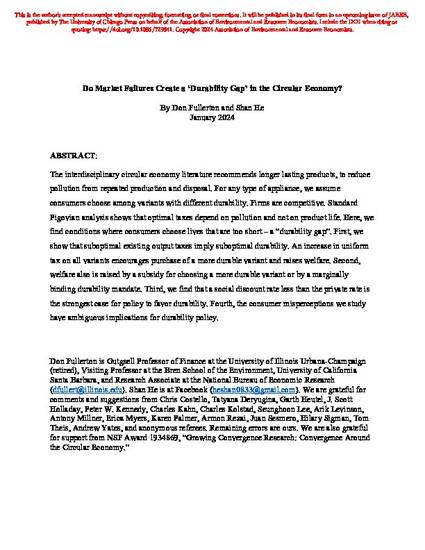
Article
Do Market Failures Create a ‘Durability Gap’ in the Circular Economy? (forthcoming)
Journal of the Association of Environmental and Resource Economists
(2024)
Abstract
The interdisciplinary circular economy literature recommends longer lasting products, to reduce pollution from repeated production and disposal. For any type of appliance, we assume consumers choose among variants with different durability. Firms are competitive. Standard Pigovian analysis shows that optimal taxes depend on pollution and not on product life. Here, we find conditions where consumers choose lives that are too short – a “durability gap”. First, we show that suboptimal existing output taxes imply suboptimal durability. An increase in uniform tax on all variants encourages purchase of a more durable variant and raises welfare. Second, welfare also is raised by a subsidy for choosing a more durable variant or by a marginally binding durability mandate. Third, we find that a social discount rate less than the private rate is the strongest case for policy to favor durability. Fourth, the consumer misperceptions we study have ambiguous implications for durability policy.
Disciplines
Publication Date
2024
Citation Information
Don Fullerton and Shan He. "Do Market Failures Create a ‘Durability Gap’ in the Circular Economy? (forthcoming)" Journal of the Association of Environmental and Resource Economists (2024) Available at: http://works.bepress.com/don_fullerton/87/
